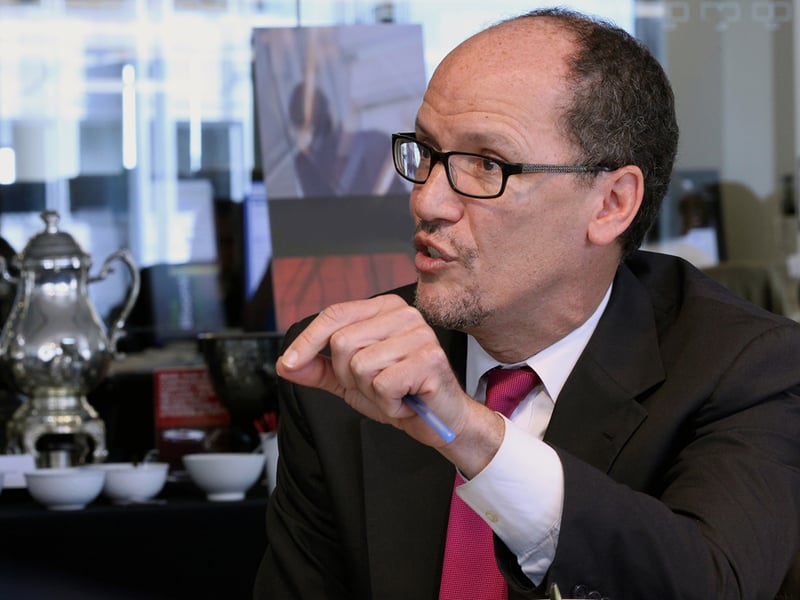Secretary of Labor Thomas Perez assured lawmakers Wednesday that the agency is listening to concerns about a controversial investment advice proposal and will “make it work.”
In an appearance before a
subcommittee of the House Education and Workforce Committee, Mr. Perez stressed that the agency is using the comment period, which runs until July 20, to gather feedback about what critics say are shortcomings of the rule.
“We're having very productive conversations about how to make it work,” Mr. Perez said.
The proposed rule was
introduced in April with strong backing from President Barack Obama.
Republicans on the panel insisted that the proposal, which would require brokers working with retirement accounts to act as fiduciaries, would create new and costly legal risk and regulatory burdens for brokers. Some Democrats also expressed qualms.
Rep. Phil Roe, R-Tenn., the panel chairman, held up a binder, saying it contained the disclosure requirements that brokers would have to meet.
“This is going to be thousands of things you have to do,” Mr. Roe said.
Echoing financial industry criticism, Mr. Roe said the rule would force brokers to abandon investors with modest accounts who are seeking to roll over money into individual retirement accounts.
“Please withdraw this proposal and work with this committee on a responsible, bipartisan approach that will strengthen protections for investors and preserve robust access to financial advice,” Mr. Roe said.
Mr. Perez did not directly respond to Mr. Roe's call to rescind the proposal. Instead, he stressed that the rule is designed to protect investors from brokers who put them into high-fee products that eat away at their retirement savings when lower-cost products would work just as well.
The rule “has a singular goal to align the best interests of the customer with those of the adviser and the firm,” Mr. Perez said. “We want to create an enforceable, best-interests standard. We want to empower consumers.”
The mechanism to do so — a legally binding contract under which brokers have flexibility in compensation as long as they act in a client's best interest — was a subject brought up by lawmakers. They worried that signing such a contract when a broker first starts talking to a potential client would be cumbersome.
Mr. Perez said the exemption will be clarified before the rule is finalized.
“You don't have to sign a contract before having a conversation,” Mr. Perez said.
Even though Mr. Perez tried to assuage fears, it was apparent at the hearing that DOL still has a long way to go to get the industry behind the proposal.
Participating in a second panel of witnesses, John Haley Jr., executive vice president of Fidelity Investments, said the best-interest contract is rife with conditions that would curtail brokers working with small businesses and small investors.
“We support a best-interests fiduciary standard, but the details matter,” Mr. Haley said.
Lisa Bleier, managing director and associate general counsel at the Securities Industry and Financial Markets Association, said the hearing showed that Republicans and Democrats are pushing back against the rule.
“What I appreciated was the bipartisan nature of the concerns raised by the members of Congress regarding the impact on individual investors,” Ms. Bleier said.
The DOL rule wouldn't hurt financial firms but would rather ensure that “we can have an industry that continues to do good and do well,” Mr. Perez said. “We can do both.”







